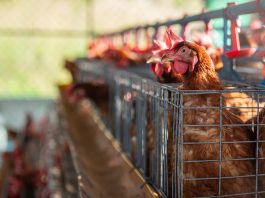A $3.7m plant lab will allow scientists to adapt plants to a hotter, drier planet, increasing food production as the security of supply becomes increasingly threatened.
The Smart Technology Experimental Plant Suite (STEPS) facility at the University of Essex will feature a standard vertical farm, an indoor field that replicates real environments worldwide. Researchers will be able to raise the CO2 concentration and temperature levels at will.
Computer plant scanning technology will also be used to monitor plants as they grow and identify changes in photosynthesis.
The research will be underpinned by AI and robotics to develop new strategies to predict how agriculture is changing due to climate change.
Why is increasing food production important?
With the human population expected to reach 9.7 billion by 2050, current levels of food production will not meet the projected demands.
The areas available to grow crops are limited, so increasing food production to reach demand must be achieved by improving efficiency.
Food production must be sustainable and not negatively impact the environment.
World-leading biologist Professor Tracy Lawson, leader of the new project, said: “This cutting-edge lab will put us at the forefront of research into how we can help plants change and adapt to climate change – helping secure everyone’s future.”
The facility will ensure food security by developing climate-resilient plants.

© University of Essex
The UK’s first university to have a commercially standard vertical farm
The new plant lab is the only one in the nation to combine all facilities and will be the first UK university to have a commercial standard vertical farm.
The STEPS facility will develop strategies to optimise performance whilst working towards net zero.
Researchers will be able to foster connections in the community to develop relationships with agriculture and technology businesses.
The STEPS lab is partly funded by the Wolfson Foundation, which pledged $1.2m to support its development.
Paul Ramsbottom, chief executive of the Wolfson Foundation, said: “We are in a race against time to futureproof agriculture against climate change, not just in the UK but globally.
“The University of Essex is leading the way in critical research and development to support innovation and sustainability in food production, and we are delighted to be funding the technology platforms that will help them achieve this.”
Collaboration with Innovation Agritech Group
The team will work with long-time industry collaborator Innovation Agritech Group.
The company installed the commercial standard vertical farm unit, deploying a full-scale GrowFrame360.
Kate Brunswick, Business Development Director at IAG, said: “Our innovative GrowFrame360 technology will empower scientists and students alike to tackle the complexities of a changing climate on future crop production, aiming for future food security.
“We eagerly anticipate the transformative impact this facility will have on agricultural resilience and productivity.”









